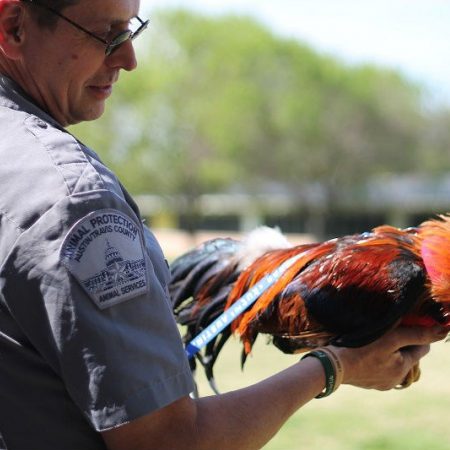
Mark Sloat’s career began in animal welfare in 1985 with the operation of a small non-profit rural dog rescue for 24 years. He also worked as a contract Animal Control Officer for a rural county in Minnesota for 11 of those years. During that time, he learned the value of returning pets to their families. While it made sense economically for the animal control contract, he quickly realized how valuable it was to the residents and their pets. By keeping them together, he was able to help the owners better care for and appreciate their pets.
He has been employed by Austin Animal Services for 5 years starting as ACO in Animal Protection unit, moving up to Program Manager. During his tenure, the focus has shifted from an enforcement-driven model to community support. The animal protection officers now focus on working with families and their pets focusing on retention. Through this model, overall intake has reduced with programs such as neighborhood ID, free microchipping, Fireworks awareness, a focus on Return to Owners in the field. AAS now also microchips in the field. The future of saving lives of pets is to stop the cycle of pet replacement. Animal Protection can be the most productive tool in that effort.